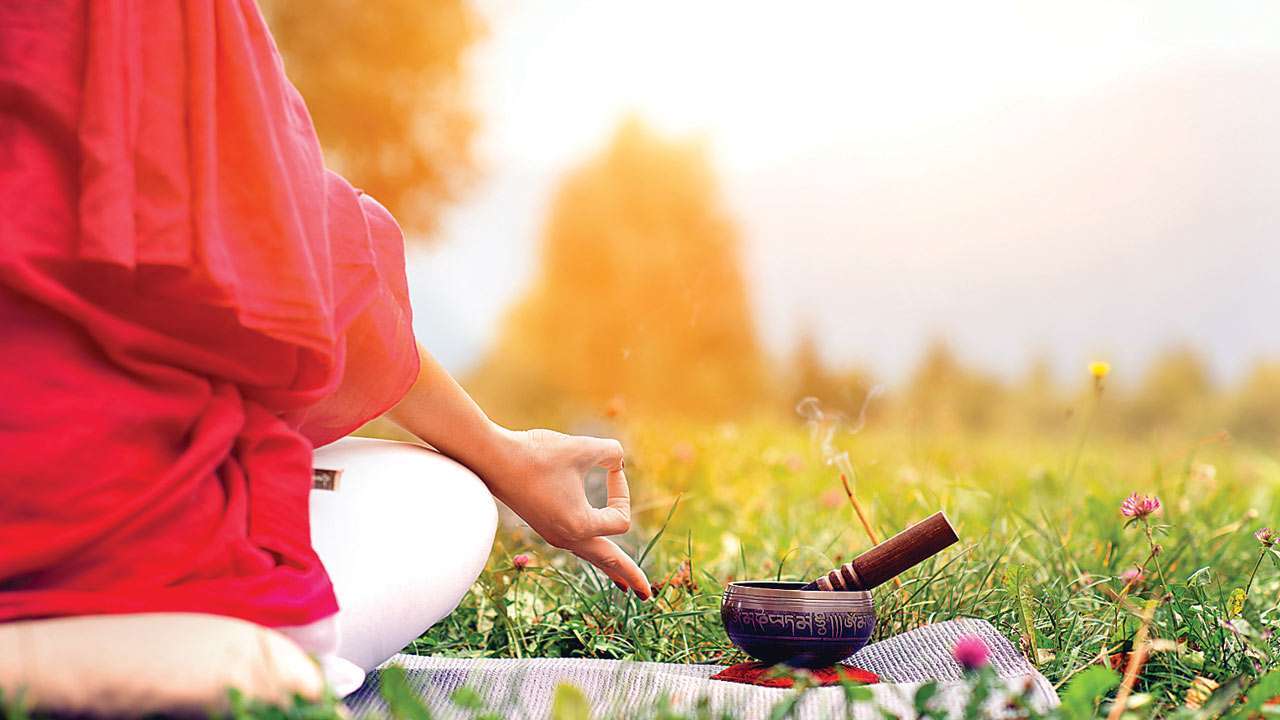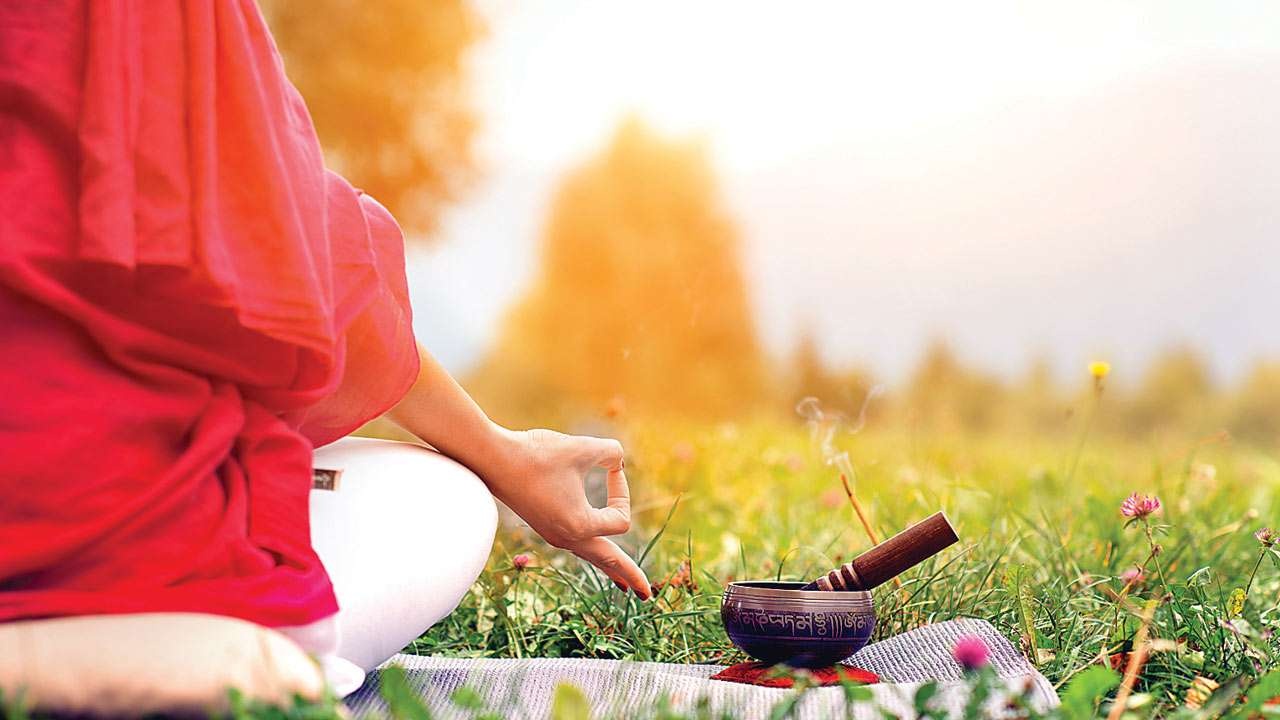

In Sanskrit, Ayurveda means “science of life”
Ayurveda is one of the oldest known medical practices with roots based in India. It’s an alternative type of medicine that believes in using herbs and lifestyle changes for a healthier and more well balanced life. Ayurveda can truly add years to your life even when you’re suffering from major illnesses like cancer or diabetes. Unlike western medicine that loops us all in together, the practice looks at each person separately & helps to find what your body needs to aid in wellness. For example, an Ayurveda practice can ward off the effects of chemo for someone going through cancer treatments.
Ayurveda is heavily practiced in India and Nepal, where around 80% of the population report using it. It has survived thousands of years and political values and is currently making its way into western medical practices.

Ayurveda is completely individualized. It believes each person is born with their own health constitution.
Ayurveda can improve the quality of your daily and overall life. Just like yoga, Ayurveda is practical for your daily routine because it starts with the routines of your everyday health like a balanced diet, sleep patterns, setting a routine and getting in your vitamins. If you become sick, it targets the root of the issue, not the symptoms. So you can become rebalanced more effectively.
According to John Hopkins, Ayurveda is important because: “Ayurveda translates to knowledge of life. Based on the idea that disease is due to an imbalance or stress in a person's consciousness, Ayurveda encourages certain lifestyle interventions and natural therapies to regain a balance between the body, mind, spirit, and the environment.”

It is often said that “Ayurveda is considered yoga’s sister science” Like yoga, Ayurveda uses the same style practices like postures, breathing, mantras and meditation. While some people use yoga to treat physical ailments or mental fatigue, Ayurveda also uses herbal formulas and oils. Also, just as there are 8 limbs of yoga, there are 8 branches of Ayurveda. The practices are like paternal twins!
In Ayurveda, it is believed that each body has a constitution that falls under three main dosha types. Your constitution will help you discover more about yourself as well as the best kind of yoga for your body and mental health.
The Type of practice that balances each Dosha are as follows:
Vata - Calming and grounded. Try a restorative or gentle class.
Kapa - Stimulating and warm. Try a vinyasa class.
Pitta - Assertive and intense. Try a power class or ashtanga class.
Want to know yours? Take this quiz!
Once you know your dosha, you can find the best asanas for your practice!
Yoga and Ayurveda practices are intertwined like tree branches. Quite frankly, connecting the two will create ultimate peace in your life and body.
In the words of Dr. David Frawley, esteemed scholar of Ayurveda, Yoga and Vedanta and director of the American Institute of Vedic Studies:
“Using Ayurveda along with Yoga helps us gain complete harmony and balance in body and mind so that we can discover our true self that is one with all. All Yoga teachers should learn the fundamentals of Ayurveda and all Yoga students should seek Ayurvedic guidance to enhance their Yoga practice.” For yoga teachers or those who practice often, it tends to be a lot on our bodies. An Ayurveda practice can help with muscle fatigue, burn out, dehydration and sleep issues.
We can be so focused on the culture of “self care” in our modern lives. We think an expensive coffee or a trip to the salon is what we need for “self care” but if you can be as intentional about your self care practice as you are about your yoga practice, thata Ayurveda. It can be as simple as realizing your body is tired and getting a massage or drinking more water to keep yourself hydrated on a long day. Tuning in to what you need, just like when you set an intention in yoga will help you to achieve a more balanced, happy and healthier life.

A pranayama class is great to pair with Ayurveda because pranayama is the science of “self healing” through the breath. It’s an essential part of both a yoga practice and an Ayurveda routine because it promotes physical, mental and emotional wellbeing.
Ashtanga is a great choice because it forces the yogi to focus on your nervous system. It makes you check in & notice how your body feels and what may be imbalanced. When you discover what’s bothering you, you can apply Ayurvedic techniques to the aliment.
No matter what your dosha, kundalini fits all Aryuvedic constitutions. This practice will help you be intentional, set a mantra and meditate.
Hatha is actually considered one of the “ Ayurvedic healing modalities. The asanas help all dosha’s to properly align both physically and mentally.
Need help getting started? We’ve got you covered!
Here, read about the diet and how to start eating for optimal health.
Want to speak with a professional to see if Ayurveda is right for you? Contact our staff practitioner!
There’s no time like now to align your practices! If you’re interested in starting an Ayurvedic practice to pair with your yoga practice, all you need to do is look within. Be intentional and listen to your body! It’s had the answers all along!

Receive personalized guidance tailored to your unique fitness goals, live with a dedicated coach—no credit card required.